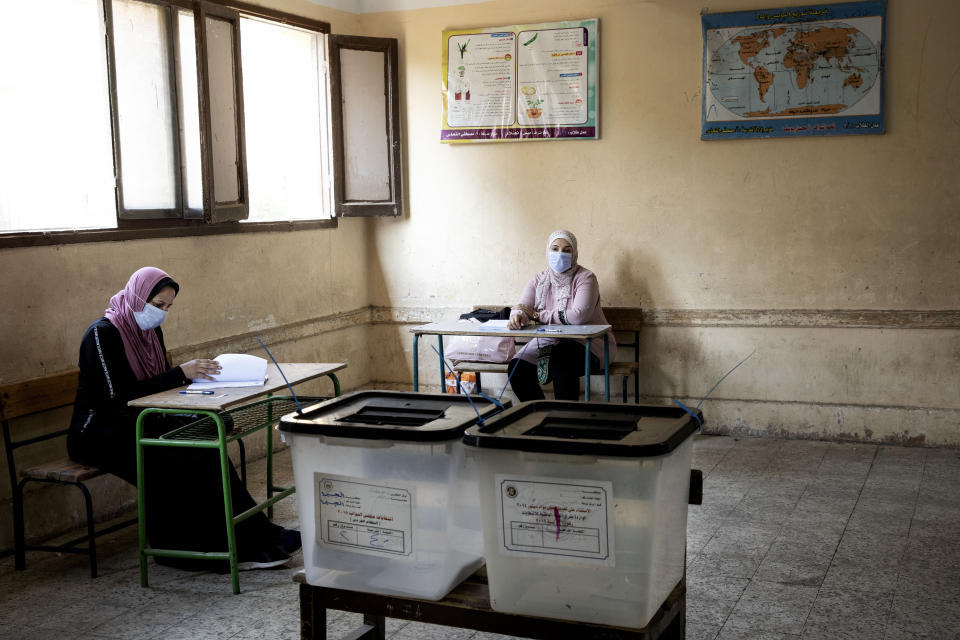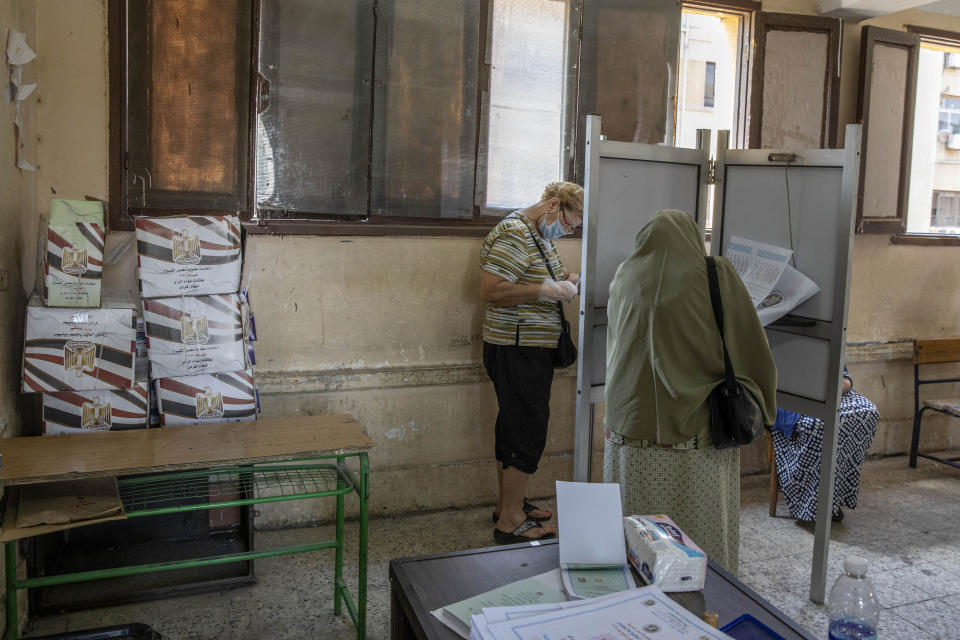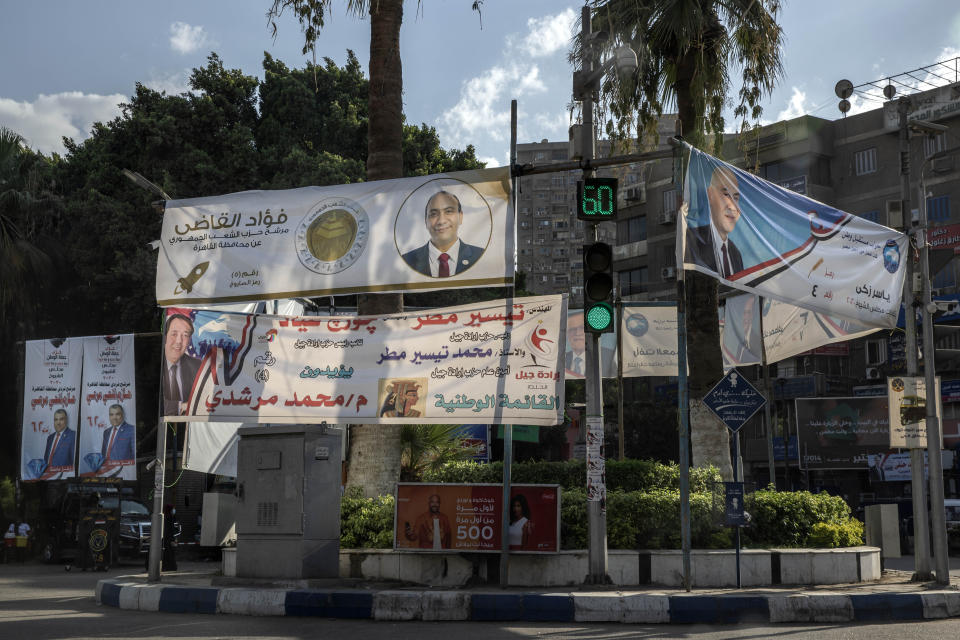Egyptians vote for revived upper house of Parliament
CAIRO (AP) — Egyptians began voting Tuesday for seats in the Senate, the upper chamber of Parliament that was restored as part of constitutional amendments approved in a referendum last year. The election comes as the country faces an increase in coronavirus cases.
Authorities said face masks would be handed out to voters for free and polling stations were disinfected ahead of the balloting to ease concerns amid the pandemic.
Little attention has been paid to the election as the 300-seat Senate — unlike the House of Representatives, the lower chamber — has no legislative powers and will have mainly an advisory role. It replaces the Shura Council, which was dissolved in 2014.
Voting was to continue Wednesday. Prime Minister Mustafa Madbouly urged Egyptians to vote, “bolstering democracy ... and enriching the political life in Egypt,” his office said in a statement.
Some 63 million voters are eligible to cast ballots. Only 200 of the 300 Senate seats are up for grabs, with 787 candidates running. Egyptian expats abroad voted Sunday and Monday.
Security was tight, with police at polling stations and patrolling Cairo streets. The military said it deployed troops to assist.
The first 100 seats in the Senate are reserved for individual candidates, the next 100 for those running on a list dominated by pro-government parties while Egyptian President Abdel Fattah el-Sissi will choose the remaining 100 members.
Outside a polling center near the Cairo University, at least a dozen people, mostly women, lined up to cast their ballots. Everyone in the line wore face masks and observed social distancing regulations.
Mahasin Abdel-Aziz said she approved of the 25% quota for women in the Senate, passed in the April 2019 referendum on the amendments to the constitution. She said the country has not seen “such an honorable representation of Egyptian women in Egypt’s political life.”
The results were expected within a week and runoffs will take place in September.
Lasheen Ibrahim, chairman of the National Election Authority, called voting “a national duty" and warned in televised comments Saturday that those who boycott the election could be fined up to 500 Egyptian pounds ($32), under an Egyptian law that has existed for years but was never really upheld.
For the past two weeks, Cairo and other cities and towns across the country have been awash with posters and banners of candidates, mostly pro-government businessmen and politicians.
Ahmed Abd Rabou, a visiting assistant professor at the University of Denver, argued that a Senate with such “limited powers” is meaningless.
“It has no value, but to introduce proposals, studies and consultations” to the country’s institutions, he said in a Facebook post.
The election comes despite an increase in coronavirus cases this week, after the daily reported numbers dropped from around 1,500 to 112 on Aug. 4. However, the actual numbers of COVID-19 cases, like elsewhere in the world, are thought to be far higher, in part due to limited testing.
The Health Ministry on Monday reported 174 new cases of the virus and 26 deaths. Overall, the country of more than 100 million people has reported more than 95,600 confirmed cases, including 5,035 deaths. That's the highest number of fatalities in the Arab World, and the third in the Middle East, tailing Iran and Turkey, according to a tally by The Associated Press.
Egypt's latest constitutional amendments extended a president’s term in office from four to six years, allowing for a maximum of two terms. But they also included a specific article extending el-Sissi's current second four-year term to six years and allowing him to run for another six-year term in 2024 — potentially extending his rule until 2030.

 Yahoo News
Yahoo News 





